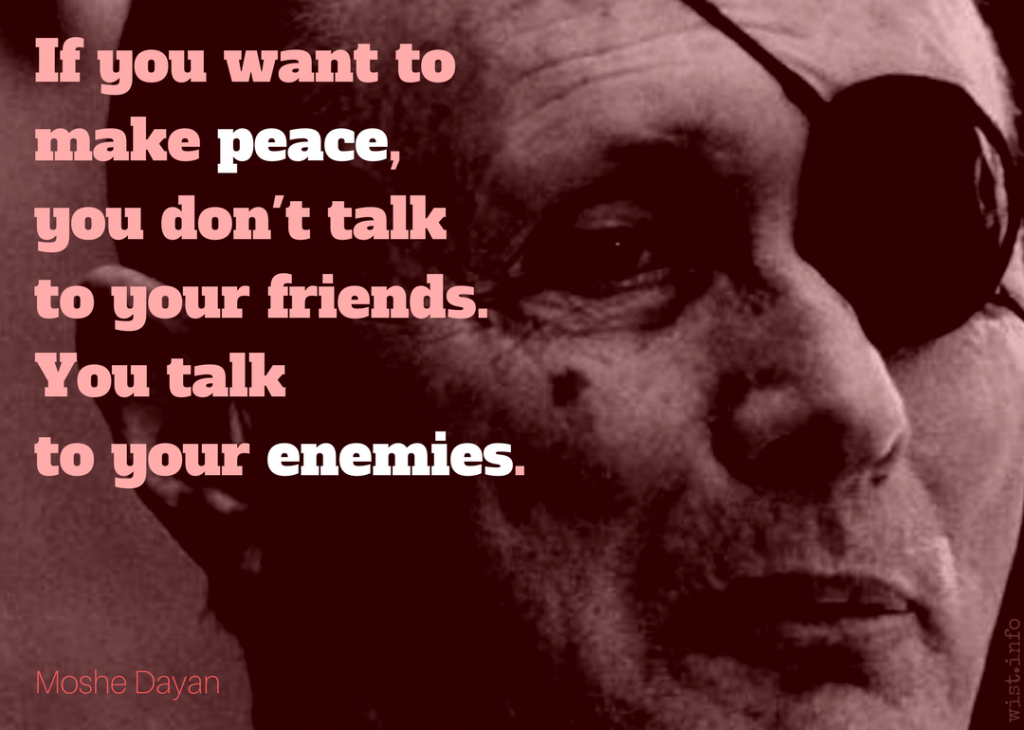There is nothing I hate more than haggling. It is simply a petty and brazen business: Two parties will negotiate and argue for an hour only to walk away from what they have solemnly agreed to over five pennies’ worth of overcharge.
[Il n’est rien que je haysse comme à marchander : c’est un pur commerce de trichoterie et d’impudence. Apres une heure de debat et de barguignage, l’un et l’autre abandonne sa parolle et ses sermens pour cinq sous d’amendement.]
Michel de Montaigne (1533-1592) French essayist
Essays, Book 1, ch. 14 “The Taste of Good and Bad Things Depends Mostly on the Opinion We Have of Them [Que le goust des biens et des maux despend en bonne partie de l’opinion que nous en avons]” (1572) (1.14) (1595) [tr. HyperEssays (2023)]
(Source)
Though this chapter was written around 1572 for the 1580 edition, this text was added for the 1588 edition. The chapter as a whole was numbered ch. 14 in the 1580 and 1588 editions, moved to ch. 40 for the 1595 ed. Most modern translations use the original numbering.
(Source (French)). Alternate translations:
There is nothing I hate more then driving of bargains: It is a meere commerce of dodging and impudencie. After an houres debating and paltring, both parties will goe from their wordes and oathes for the getting or saving of a shilling.
[tr. Florio (1603), ch. 40]
There is nothing I hate so much, as driving a Bargain; ’tis a meer Traffick of Couzenage and Impudence; where after an Hours cheapning and dogding, both Parties abandon their Word and Oath for Five Sols profit, or abatement.
[tr. Cotton (1686), ch. 40]
There is nothing I hate so much as driving a bargain; 'tis a mere traffic of cozenage and impudence, where, after an hour's cheapening and hesitating, both parties abandon their word and oath for five sols' abatement.
[tr. Cotton/Hazlitt (1877), ch. 40]
There is nothing that I hate so much as haggling; it is a mere interchange of cheating and impudence. Afer an hour of wrangling and chaffering, one and the other side sacrifices his word and his oaths for a charge of five sous.
[tr. Ives (1925)]
There is nothing I hate like bargaining. It is a pure interchange of trickery and shamelessness: after an hour of disputing and haggling both men go back on their word and their oath for a gain of five sous.
[tr. Frame (1943)]
There is nothing I hate more than bargaining. It is a pure exchange of trickery and effrontery: after hours of arguing and haggling both sides go back on their pledged word to gain a few pence more.
[tr. Screech (1987)]
Quotations about:
negotiation
Note not all quotations have been tagged, so Search may find additional quotes on this topic.
Of course, somehow, these champions of free market, these lovers of the invisible hand, cannot figure out that if people won’t sell you a good or service under the terms you set, free market competition demands that you offer better terms and conditions. It’s as simple as that. If you can’t buy a Porsche for $1.98, that doesn’t mean there’s an automobile shortage.
Peter Greene (contemp.) American teacher, blogger
“Florida’s Teacher Gap Is No Mystery,” Huffington Post (21 Nov 2017)
(Source)
The hard line, which has always been arguable in theory and which has had some success in practice, views the imperatives of the cold war as an ineluctable challenge, has encouraged a skeptical view of the limits of negotiation, and has placed its primary trust in ample reserves of strength.
The pseudo-conservative line is distinguishable from this not alone in being more crusade-minded and more risk-oriented in its proposed policies but also in its conviction that those who place greater stress on negotiation and accommodation are either engaged in treasonable conspiracy (the Birch Society’s view) or are guilty of well-nigh criminal failings in moral and intellectual fiber (Goldwater’s).Richard Hofstadter (1916-1970) American historian and intellectual
“Goldwater and Pseudo-Conservative Politics,” sec. 4 (1965)
(Source)
If you aren’t at the table, you’re on the menu.
Ann Richards (1933-2006) American politician [Dorothy Ann Willis Richards]
(Attributed)
Richards regularly used the phrase, but it's unclear if she originated it. See here for more discussion.
Tact is the art of putting your foot down without stepping on anyone’s toes.
Lawrence J. Peter (1919-1990) American educator, management theorist
Peter’s Almanac, “July 26” (1982)
(Source)
Discourage litigation. Persuade your neighbors to compromise whenever you can. Point out to them how the nominal winner is often a real loser — in fees, and expenses, and waste of time. As a peacemaker the lawyer has a superior opertunity [sic] of being a good man. There will still be business enough.
It would be some time before I fully realized that the United States sees little need for diplomacy; power is enough. Only the weak rely on diplomacy. This is why the weak are so deeply concerned with the democratic principle of the sovereign equality of states, as a means of providing some small measure of equality for that which is not equal in fact. Coming from a developing country, I was trained extensively in international law and diplomacy and mistakenly assumed that the great powers, especially the United States, also trained their representatives in diplomacy and accepted the value of it. But the Roman Empire had no need for diplomacy. Nor does the United States. Diplomacy is perceived by an imperial power as a waste of time and prestige and a sign of weakness.
Someone sends me a clipping from Columnist Lyons with this honey: “They are telling this of Lord Beaverbrook and a visiting Yankee actress. In a game of hypothetical questions, Beaverbrook asked the lady: ‘Would you live with a stranger if he paid you one million pounds?’ She said she would. ‘And if be paid you five pounds?’ The irate lady fumed: ‘Five pounds. What do you think I am?’ Beaverbrook replied: ‘We’ve already established that. Now we are trying to determine the degree.'”
Max Aitken, Lord Beaverbrook (1879-1964) Anglo-Canadian business tycoon, publisher, politician, writer
“As O. O. McIntyre Sees It,” syndicated column (2 Jan 1937)
This anecdote has been attributed to a number of people, including Winston Churchill and George Bernard Shaw, usually in a bawdier form, e.g.:SHAW: [To a woman seated by him at a dinner party.] Madam, if I gave you a million pounds, would you sleep with me?
WOMAN: I think I would.
SHAW: Would you do it for five?
WOMAN: Sir, what kind of woman do you think I am?
SHAW: I thought we had established that, and were merely haggling over the price.
The above, attributing the exchange to Lord Beaverbrook, is the earliest version found. See here and here for more discussion and research into its origins.
So let us begin anew — remembering on both sides that civility is not a sign of weakness, and sincerity is always subject to proof. Let us never negotiate out of fear. But let us never fear to negotiate.













